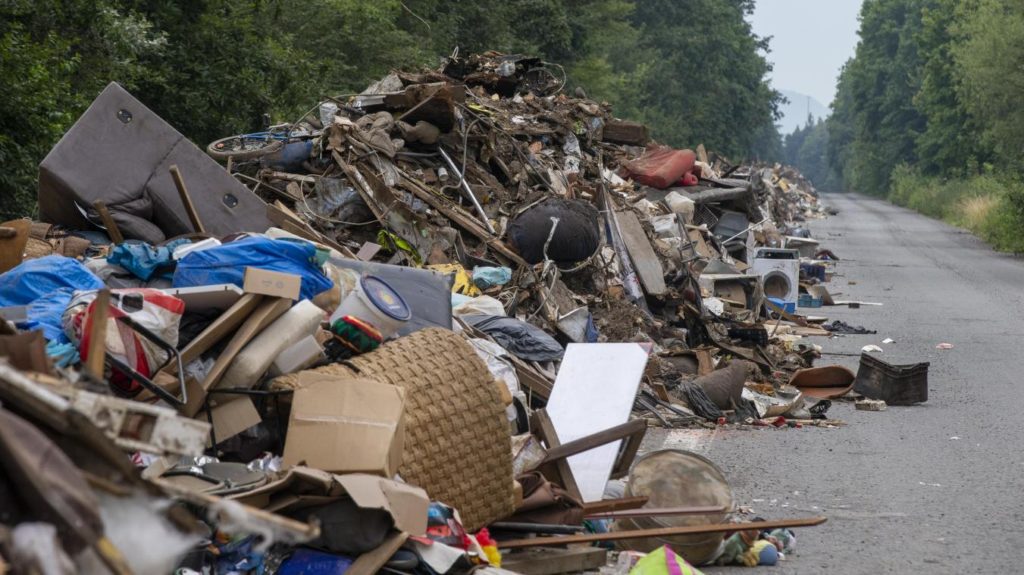Over 155,000 tonnes of waste created by the unprecedented July floods will take at least a year to process, Céline Tellier - Wallonian Environment Minister - told Bel RTL on Monday morning.
Provisionally estimated at weighing 155,000 tonnes, the waste is currently being collected on two sites: one at Wérihet, Wandre, and the other on a closed section of the A601 motorway to the north of Liège. "We hope to clear the Wandre site in around two months. The A601 site will take much longer,' Tellier said, projecting a period of one year.
To better understand the scale of the problem, the waste on the two sites weighs as much as all the bulky waste taken to recycling centres by Wallonians in a typical year. To treat it, the Environment Minister has put forward a "balanced solution" that aims to protect locals as well as the environment whilst also dealing with the issue pragmatically.
20-30% of the waste should be sorted and recycled and the remaining material will be either incinerated to produce electricity or sent to landfill. This final course of action will be "limited to a strict minimum" given its detrimental effect on the environment, Tellier confirmed.
In addition, there is an estimated 40,000 tonnes of polluted earth and sediment caused primarily by spills from the numerous oil tanks which were destroyed by the floods. The minister highlighted the significance of this matter and explained that a "specific treatment" will be used to deal with the polluted earth.
Related News
- Ecolo in favour of inter-parliamentary commission of inquiry into deadly floods
- Unemployed and undocumented can help repair flood damage, Walloon minister says
- Walloon Government considers how to manage waste from floods
Tests, analyses, and the treatment of polluted soil will be carried out by Wallonian environmental bodies, with the associated costs also covered by the regional government. Tellier expressed her hopes for a "special commission" to shed light upon the causes of the floods, particularly the management of dams. "However, the primary causes are changes in climate and land management," the minister said.
The Brussels Times

